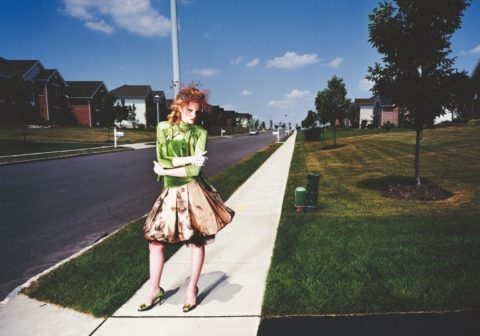I traded a downtown loft for a two hour commute and lived to write about it

On May 30, I did something I never thought I’d do: I packed up all of my belongings from my loft in Toronto’s King West neighbourhood and loaded a 17-foot moving truck that headed to Hamilton, Ontario, where my boyfriend, Todd, and I had bought a house in the city’s North End. In heading westward we bid adieu to the city we’d planted our roots in more than a decade earlier, trading an adjacent French patisserie for a drive-thru Beer Store.
Just the year prior, Todd and I first moved in together into the loft that made us rethink everything. It seemed we had hit the jackpot: It was in close proximity to the city’s trendy Trinity Bellwoods Park, a couple of blocks from some of the country’s best restaurants and a 35-minute walk to my office (or a 15-minute sardine-tin-like commute on public transit). Todd works from home mostly, as a professional photographer, so he’d bask in the light from the floor-to-ceiling windows as he edited photos.
The decision to swap big city living for smaller city living was at first a matter of math. When we considered buying a similar condo, if not the one we lived in, we found out quickly our dream dwelling was just that—a starry dream. With a price tag of $400,000-plus and monthly condo fees around $600 per month, it was out of reach. This financial conundrum spurred some serious, strategic conversations—which were religiously held across the street at a local bar. With drinks in hand, we weighed the pros of buying a smaller, cheaper condo (close to work, restaurants and friends) with the cons (lack of space, lifelong condo fees, inability to add members, canine or otherwise, to the 750 square feet).
After singing the blues of the current housing situation to my mom—the average dwelling price in Toronto was $615,000 and over $1 million for a detached home—she gently (read persistently) suggested we consider the up-and-coming Hamilton market, which is closer to my family and not far from Ancaster, where I grew up. With a budget of $300,000, we set out to see what we could find. The result? A detached home with three bedrooms and two bathrooms, just outside of the trendy James Street North, which is full of galleries, clothing boutiques and restaurants.
Moving out of the bustling city of Toronto has benefitted my quality of life in many ways, which I never would’ve considered in my days of big city snobbery (did I mention I lived in Paris once upon a time and thought my future lay in close proximity to the Eiffel Tower?). Pulling weeds from between the lavender, sunflowers and irises in our yard and running along Hamilton’s scenic Pier 4 Park are just two mental-health-boosting activities I might never have imagined, given my past perception of the Steel City.
For freelance editor/writer Yuki Hayashi, who moved to Hamilton eight years ago with her partner and her daughter, the city was a boon for her fitness regimen. She finally had the time and landscape to start training for, and participating in, marathons, triathlons and even an Ironman. “I feel like I have this breathing room,” she says. “Being close to the countryside, I can ride my bike and within 20 minutes I’m in Flamborough or Dundas…. We even bought a canoe.”
But, unlike Hayashi, lately my view of rivers and lakes hasn’t been from a water vessel but through the windows of the GO Train, where I spend approximately three and a half hours per weekday with my knees held hostage between those of the #manspreading stranger in front of me. This is, for me, where the health benefits come to a screeching halt. Being a health editor, I know that leading a sedentary lifestyle is the latest epidemic that some public health advocates practically equate with the perils of fast food. The research does show that being deskbound for long periods is linked to Type 2 diabetes , a higher risk of heart disease and, of course, the more superficial side effect of the burgeoning muffin top. Then there’s the aura of tension among grumpy commuters after work—would it kill anyone to smile? Sadly, I’m now not much better at 6 p.m. as my blood sugar dips and I become a hangry mess. But I’ve come up with a fairly new action plan to stay as fit—and optimistic—as possible. It includes hitting a local bootcamp during lunch and filling my unproductive hours on the train with educational podcasts, brain-boosting Sudoku puzzles and even relaxing meditations.
What I lose in terms of time spent at home, I gain in what I perceive to be a less stressful lifestyle overall—hear me out. One of the ways this presents itself is simply friendliness. People in Hamilton stop to chat, they wish you a nice day at the Tim Hortons drive-thru and they just want to talk (there’s even Hamilton’s Dancing Guy, who takes to the streets like he’s on the set of Footloose).
Hayashi says that chivalry was one of the first things she noticed upon moving to The Hammer. And the reduced societal pressure to adhere to fashion trends and keep up with the Joneses. “When we moved out here, we were more focused on our own thing and not worried about consumer goods as much,” says Hayashi. “It created a huge shift in our thinking. We started travelling more because we had more disposable income, and we were more interested in what we could experience with our money as opposed to what we could buy. I think that in a lot of big cities like Toronto, New York and Vancouver, you can find yourself caught up in this rat race where it’s just about keeping up with people…. Our relationship improved, too, because we weren’t fighting about money.”
Though Todd and I have yet to notice a monetary windfall, as we take on home improvement projects, renovations and now have a car (in Toronto, we relied on our feet and the TTC), the financial future seems hopeful. Shilo Morton, who moved to Hamilton from Toronto’s Parkdale a year ago, feels a similar sense of gratification after opening her first store, Shine, a gift and housewares boutique in the James Street North art district. “I’m not like a rat in a maze trying to get my next piece of cheese,” she says. “I have something to work toward; I’m building a career, I have a community, people listen to my voice.”
The greatest benefit to me in this adventure hasn’t been about finding the perfect home or even discovering a new city. While the pros will battle the cons for years to come, I now accept that you just never know where you’ll end up—and I couldn’t be happier about it.








